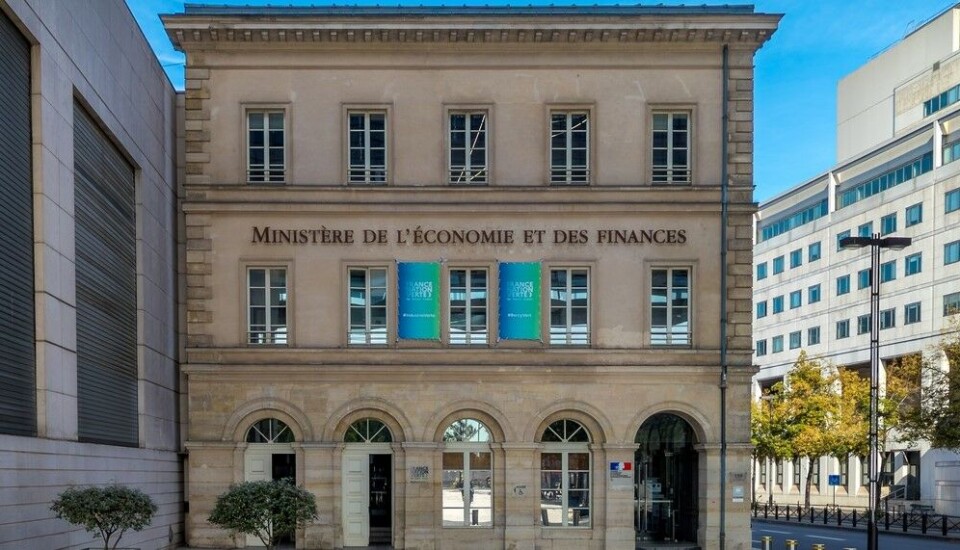-
More than a million people in France hit by bank account data breach
Account holders advised to check direct debits after cybertattack on national bank account register
-
Occitanie copper phase-out ramps up – how it will affect residents
There are some simple steps you can take to prepare for the switchoff
-
Which cars are stolen the most in France and why?
Perhaps surprisingly, the higher-end vehicles are not the most targeted
How French tax officials are using AI to track fraud
The software is continually being fine tuned to enhance its ability to identify potential discrepancies

French tax officials are now using artificial intelligence (AI) to track fraudsters, with up to half of the investigations into possible business fraud now initiated from the system.
The ’ciblage des opérations fiscales’ (‘financial operations targeting’ or ‘ data mining ’) service is part of the Direction générale des finances publiques (DGFIP).
How does it work?
The system uses algorithms, tax identification numbers, confidential tax data, and mathematical formulae in a bid to highlight a possible fraud. Managed by data scientists, the AI system is housed in a warehouse of computer servers in a location in France that is kept secret to avoid attacks.
The AI algorithms are designed by 32 specialists, including contract data scientists, state (INSEE) researchers and tax specialists. They work by scanning thousands of pieces of data - known as ‘data-mining’ - to identify files that present an ‘anomaly’ and therefore have a greater chance of being fraudulent.
Identified cases are then sent to the local finance authority which will launch a tax audit. Now, 50% of all business checks are made as a result of AI, with the other 50% coming from more traditional detection methods such as tax agents’ suspicions or tip-offs.
Individual income and rental declarations
The DGFIP is now aiming to target the number of possible fraud cases among individuals (as opposed to businesses) to 50% by 2027.
“The first models we developed for individuals are aimed at income tax fraud,” said Gilles Clabecq, head of the AI department at the DGFIP, to Le Figaro.
This work will focus on ‘high-stakes cases’. This means individuals from whom recovering the funds could be substantial: for example, people with high assets and high property wealth, and, for example, those who declare less rent than they actually receive from rental properties.
The technology cross-references all the data it can in a bid to predict how much rent should be declared. This might include the property’s address, the land registry, any declared works etc.
The algorithm will then calculate an ‘expected rent’ for each file. Any significant discrepancy be flagged.
“Once the model was working well for single-owner properties, we were able to extrapolate it to multi-owner properties,” said Mr Clabecq.
It comes after AI tools have already been used to help with other financial documents, including allocating amendments to finance bills.
“This allocation work used to involve 10 agents for 24 hours,” said Jérôme Fournel, the director general of Public Finances. “In this case, the allocation was done by the algorithm in just two hours.”
Other official uses for AI
AI has also been used to police other forms of declarations in France.
For example, software developed by Capgemini and Google uses aerial photos to check for unregistered swimming pools, and this year identified nearly 120,000 potential cases. This represents around €40 million to €50 million in additional tax revenue.
The tools will soon also be used to identify other undeclared buildings more accurately, such as garden sheds, and extensions.
Read more: Tax authorities discover 120,000 undeclared swimming pools in France
Read more: France widens tax crackdown to include undeclared sheds and verandas
However, it is more difficult to extend the system from swimming pools to buildings, said Mr Fournel.
“Experiments on buildings are far from conclusive,” he said. “The automatic transfer of the drawing to the cadastral plan is less accurate than having surveyors in the field.
“It takes longer than for swimming pools, because it's more complicated and the error rate has to be very low before we can experiment with a new function.”
Related articles
France to use spies and wire-tapping to track down tax evaders
Dozens of French mairies employing private firms to track tax fraud
How incorrect French customs checks led to €40bn loss for UK
























